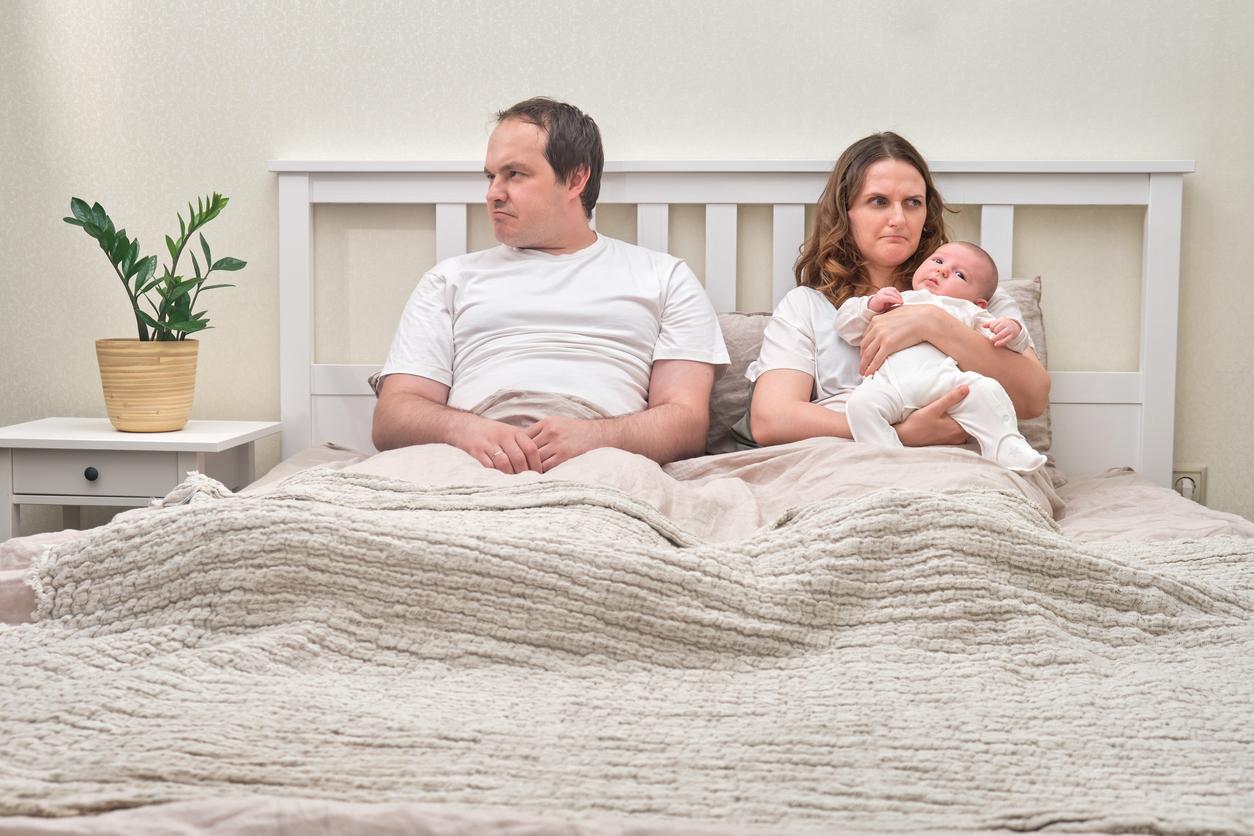Fathers are at risk of depression during the first months of their child’s life if they disagree with the mother about his upbringing.

- Depression can affect anyone at any age.
- This disease is linked to a disturbance in the functioning of the brain – not its structure – which means that it is reversible if it is taken care of.
One in five people have suffered or will suffer from depression in their lifetime, according to theNational Institute of Health and Medical Research (Inserm). Among the risk factors for this mental illness, there may be certain events, such as death, job loss, separation… But also, according to a new study published in the journal Journal of Affective Disordersbecoming a dad.
Co-parenting, a crucial notion for education and good understanding
Indeed, scientists from Karolinska Institutet claim that fathers are more at risk of developing depression during the first months of their child’s life if, immediately after birth, their co-parenting relationship with the mother is poor.
This notion of co-parenting can be defined as the sharing of rights and responsibilities of the father and the mother with regard to the children. It therefore also refers to the way they get along and work together to raise their offspring. There would thus be four very important elements: the way of raising the child, support for the parental capacity of the other parent, the common definition of family norms and the division of custody work.
“At a societal level, we could save a lot of time if we were more supportive of co-parenting relationships during the early stages of parenthood, says Michael Wells, associate professor in the Department of Women’s and Children’s Health, in a communicated. One way to achieve this is to screen fathers for this co-parenting status during early childhood and to offer them, if necessary, interventions to improve collaboration and communication around the child.”
Fathers are also at risk for postpartum depression
10 to 20% of mothers are affected by postpartum depression in the weeks following childbirth, according to health insurance. This corresponds, according to MSD Manual, with depressive symptoms that last more than two weeks after childbirth and meet the criteria for major depression. But it’s not just women who are affected, the authors of the study estimate that 9 to 10% of new fathers also suffer from it.
To arrive at their results, the authors analyzed data from 429 Swedish fathers. These participants were asked to complete questionnaires about their depressive symptoms and the nature of their co-parenting relationships three times: when their child was around eight months old, thirteen months old, and twenty-six months old.
Results: Approximately 20% of fathers reported depressive symptoms at some point during the study. On the other hand, two-thirds of fathers who had very poor co-parenting relationships during the first year of their child’s life were more at risk of presenting symptoms of depression. On the other hand, fathers whose co-parenting scores were higher had a lower risk of suffering from this mental disorder.
The researchers believe that more screening should be done for young fathers who therefore also have the risk of depression. Ultimately, they hope their work will help limit the risk in fathers by developing co-parenting interventions and support systems.
















